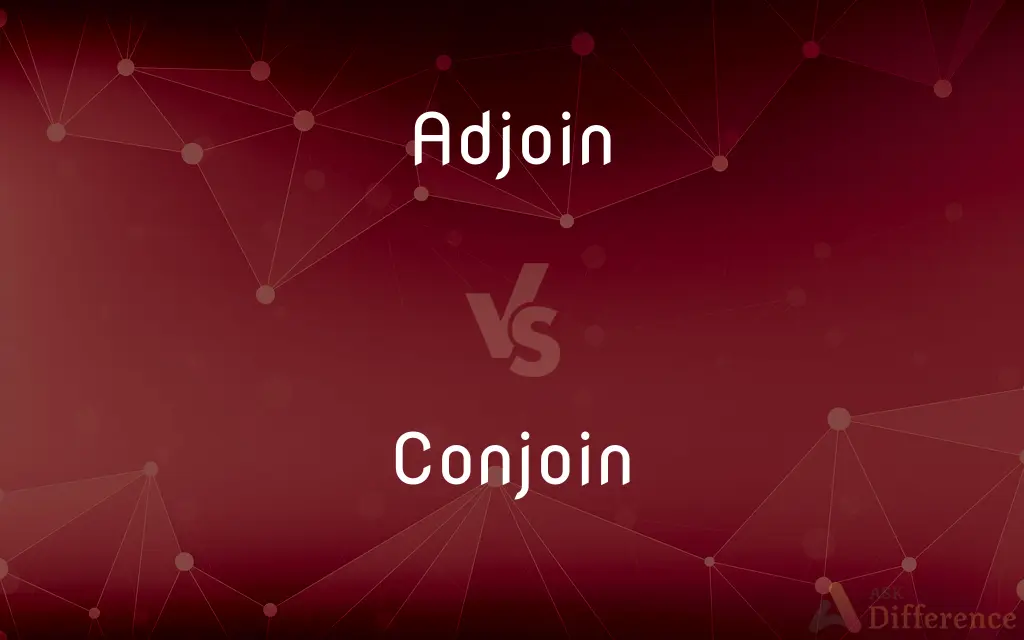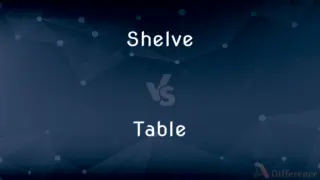Adjoin vs. Conjoin — What's the Difference?

Difference Between Adjoin and Conjoin
ADVERTISEMENT
Compare with Definitions
Adjoin
To be next to; be contiguous to
Property that adjoins ours.
Conjoin
To join or become joined together; unite.
Adjoin
To attach
"I do adjoin a copy of the letter that I have received" (John Fowles).
Conjoin
(transitive) To join together; to unite; to combine.
They are representatives that will loosely conjoin a nation.
Adjoin
To be contiguous.
ADVERTISEMENT
Conjoin
(transitive) To marry.
I will conjoin you in holy matrimony.
Adjoin
(transitive) To be in contact or connection with.
The living room and dining room adjoin each other.
Conjoin
To join as coordinate elements, often with a coordinating conjunction, such as coordinate clauses.
Adjoin
To extend an algebraic object (e.g. a field, a ring, etc.) by adding to it (an element not belonging to it) and all finite power series of (the element).
can be obtained from by adjoining to .
Conjoin
To combine two sets, conditions, or expressions by a logical AND; to intersect.
Adjoin
To join or unite to; to lie contiguous to; to be in contact with; to attach; to append.
Corrections . . . should be, as remarks, adjoined by way of note.
Conjoin
(intransitive) To unite, to join, to league.
Adjoin
To lie or be next, or in contact; to be contiguous; as, the houses adjoin.
When one man's land adjoins to another's.
Conjoin
(grammar) One of the words or phrases that are coordinated by a conjunction.
Adjoin
To join one's self.
She lightly unto him adjoined side to side.
Conjoin
(archaeology) A reassembled bone, stone or ceramic artifact.
Adjoin
Lie adjacent to another or share a boundary;
Canada adjoins the U.S.
England marches with Scotland
Conjoin
To join together; to unite.
The English army, that divided wasInto two parties, is now conjoined in one.
If either of you know any inward impediment why you should not be conjoined.
Let that which he learns next be nearly conjoined with what he knows already.
Adjoin
Be in direct physical contact with; make contact;
The two buildings touch
Their hands touched
The wire must not contact the metal cover
The surfaces contact at this point
Conjoin
To unite; to join; to league.
Adjoin
Attach or add;
I adjoin a copy of your my lawyer's letter
Conjoin
Make contact or come together;
The two roads join here
Conjoin
Take in marriage
Share Your Discovery

Previous Comparison
Shelve vs. Table
Next Comparison
King vs. Tsar














































